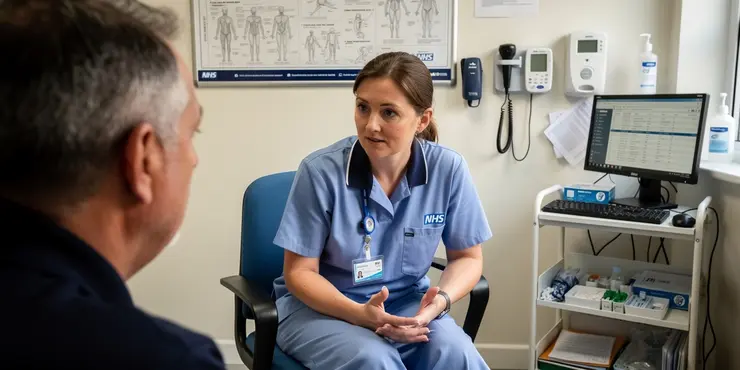
Find Help
More Items From Ergsy search
-
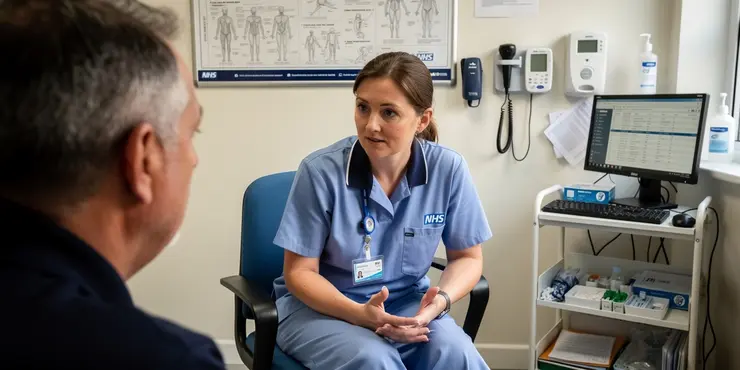
Has aspirin been proven to cure colorectal cancer?
Relevance: 100%
-
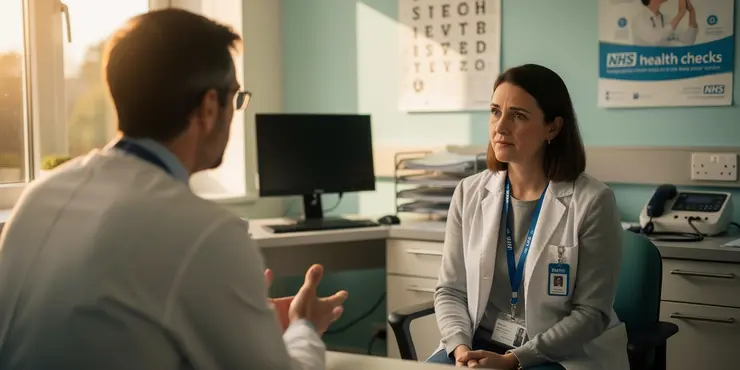
Can aspirin stop colorectal cancer?
Relevance: 86%
-
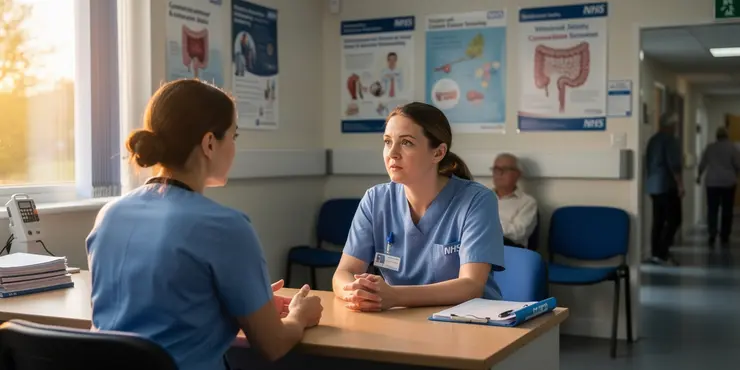
Is aspirin recommended for everyone to prevent colorectal cancer?
Relevance: 81%
-
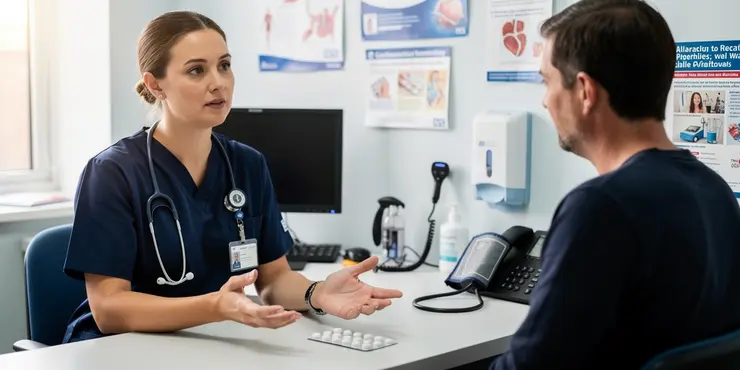
Should people with a family history of colorectal cancer take aspirin?
Relevance: 76%
-
Is aspirin more effective for certain age groups in preventing colorectal cancer?
Relevance: 73%
-
Is aspirin effective in preventing other types of cancer?
Relevance: 63%
-
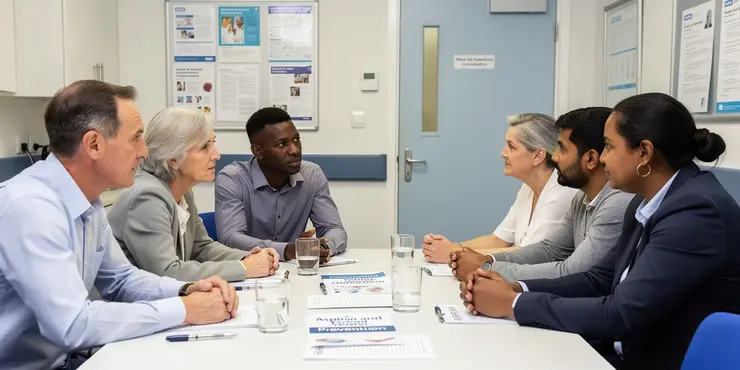
Can aspirin prevent colorectal cancer?
Relevance: 60%
-

How does aspirin work to reduce cancer risk?
Relevance: 59%
-
Are there ongoing studies about aspirin and colorectal cancer?
Relevance: 57%
-
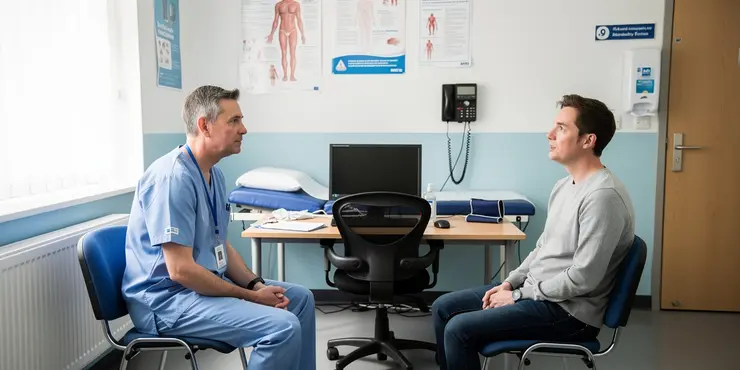
What should I do if I'm considering aspirin for cancer prevention?
Relevance: 57%
-
Has the FDA approved aspirin for cancer prevention?
Relevance: 57%
-
How long do studies suggest taking aspirin for cancer prevention?
Relevance: 57%
-
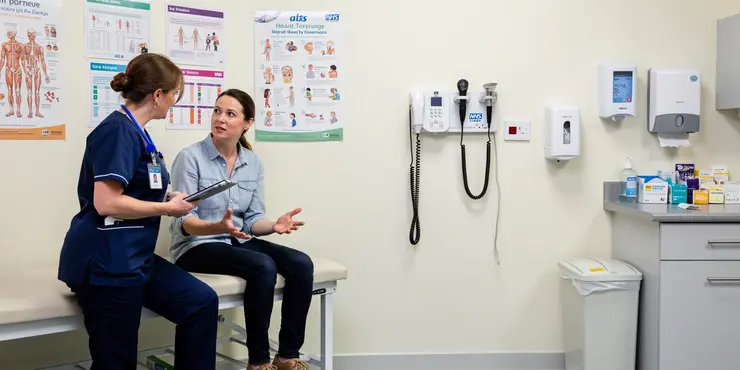
What dosage of aspirin is considered effective for cancer prevention?
Relevance: 56%
-

What is colorectal cancer?
Relevance: 55%
-
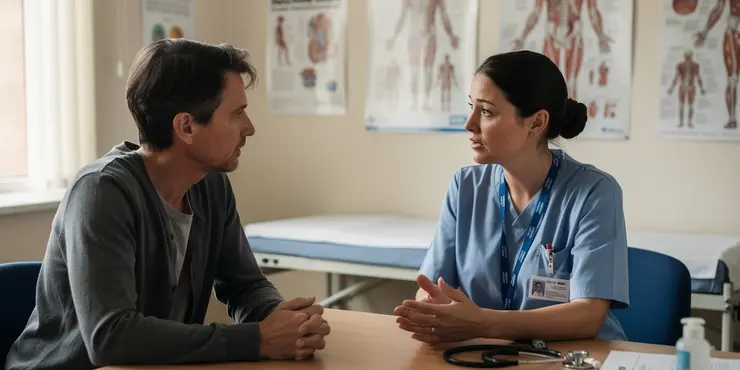
What do health organizations say about aspirin and cancer prevention?
Relevance: 54%
-
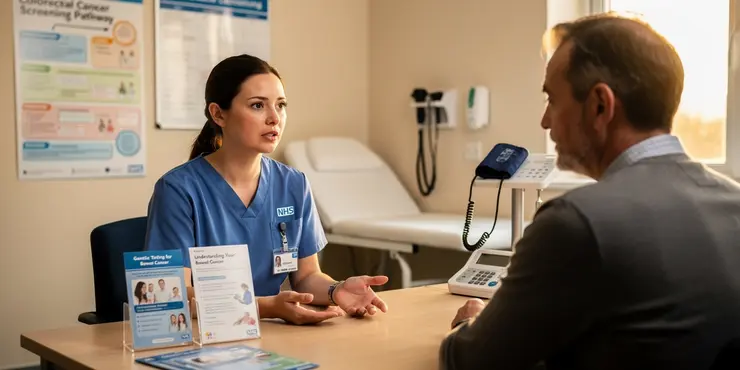
Is genetic testing available for colorectal cancer?
Relevance: 51%
-
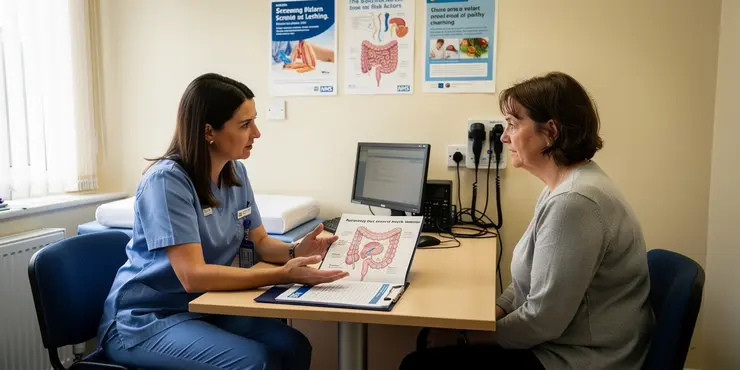
What factors increase my risk of colorectal cancer?
Relevance: 50%
-
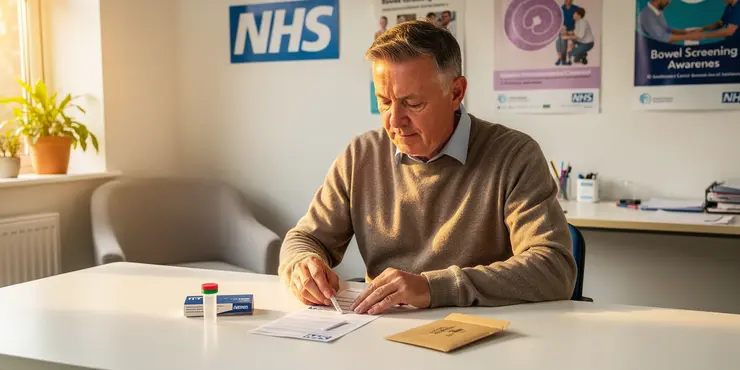
What are the recommendations for colorectal cancer screening?
Relevance: 50%
-
Are there risks associated with home colorectal cancer tests?
Relevance: 49%
-
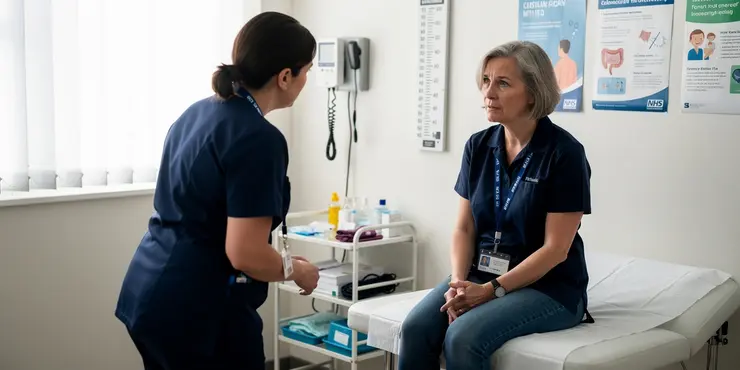
How can I test myself for colorectal cancer?
Relevance: 49%
-
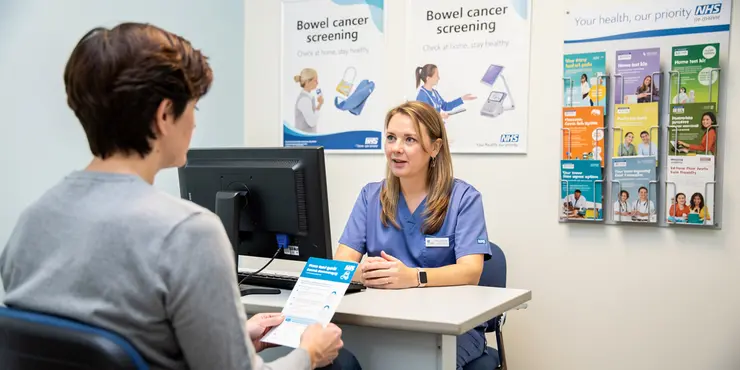
Will insurance cover the cost of home colorectal cancer tests?
Relevance: 48%
-
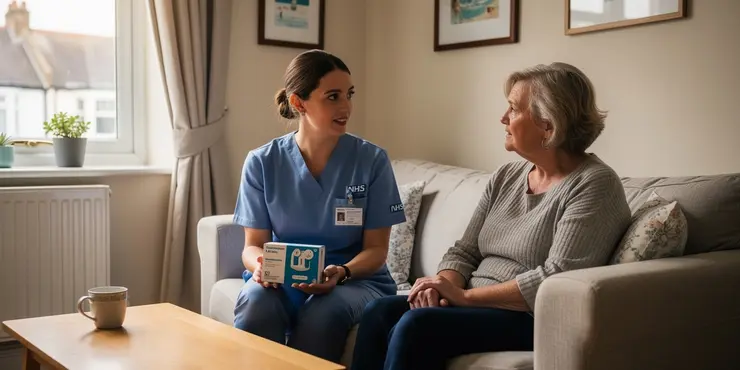
What are the advantages of an at-home colorectal cancer test?
Relevance: 47%
-
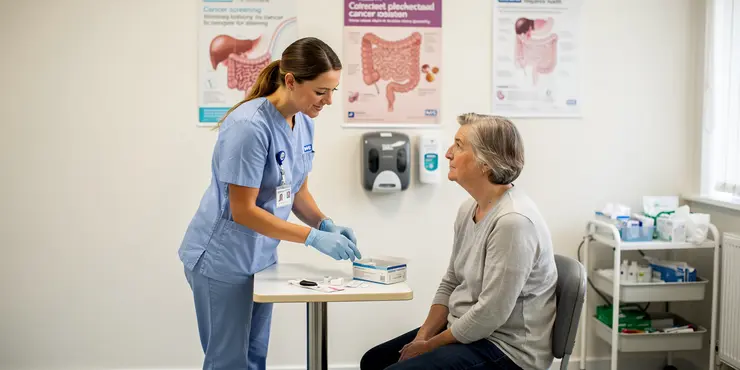
Can home colorectal cancer tests replace a colonoscopy?
Relevance: 47%
-
Can lifestyle changes also help prevent colorectal cancer?
Relevance: 47%
-
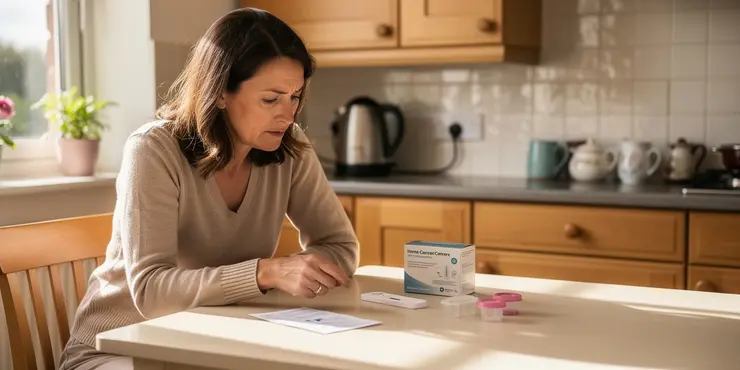
How often should I perform a home colorectal cancer test?
Relevance: 46%
-
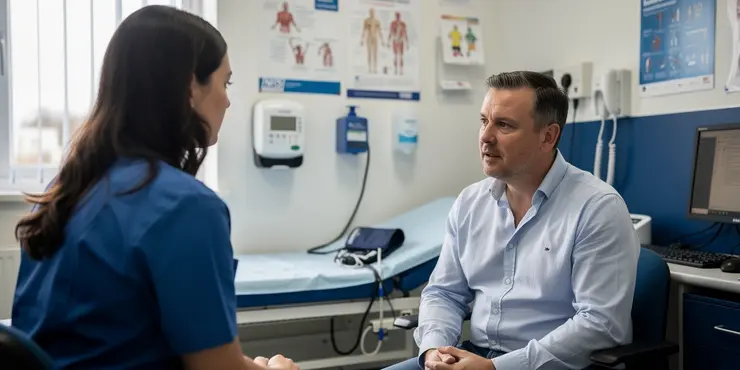
Does Abiraterone cure prostate cancer?
Relevance: 41%
-
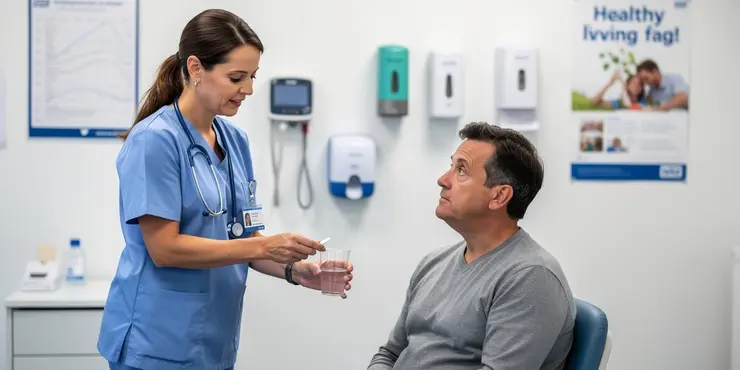
What is Aspirin?
Relevance: 37%
-

Are home tests for colorectal cancer accurate?
Relevance: 36%
-
Can aspirin interact with other medications?
Relevance: 35%
-
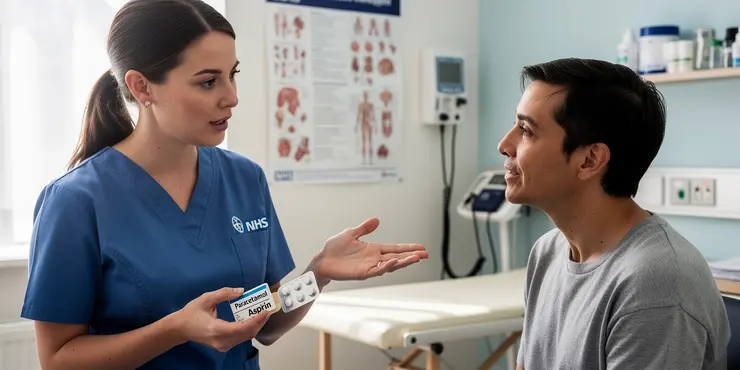
Is Paracetamol the same as Aspirin?
Relevance: 35%
-

Are Aspirin and Ibuprofen the same?
Relevance: 34%
-
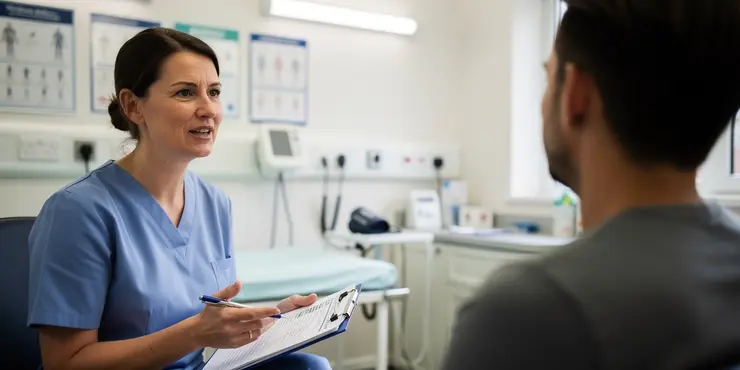
What are the side effects of Aspirin?
Relevance: 34%
-
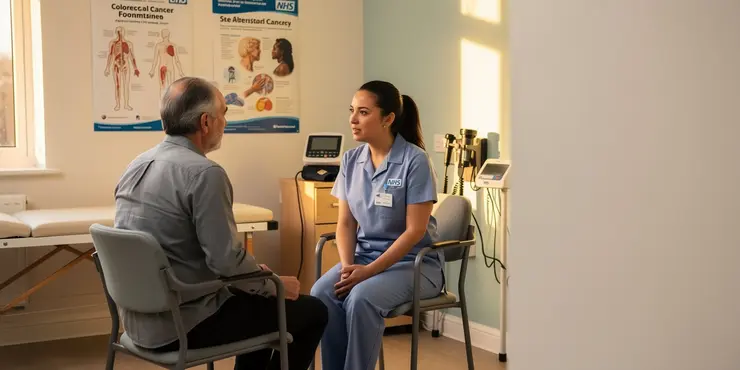
What alternative methods exist to screen for colorectal cancer?
Relevance: 33%
-

Can lifestyle factors influence the results of a colorectal cancer test?
Relevance: 32%
-
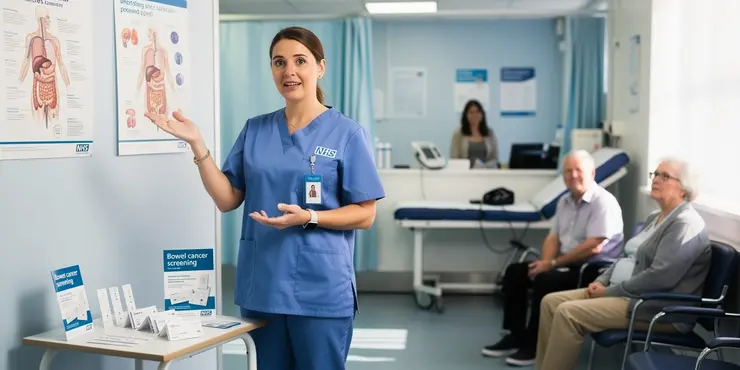
What are the main methods for testing yourself for colorectal cancer?
Relevance: 32%
-
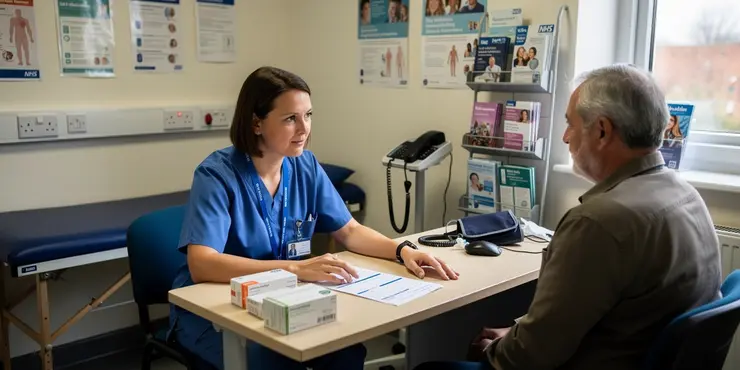
Can I take Aspirin and Ibuprofen together?
Relevance: 32%
-
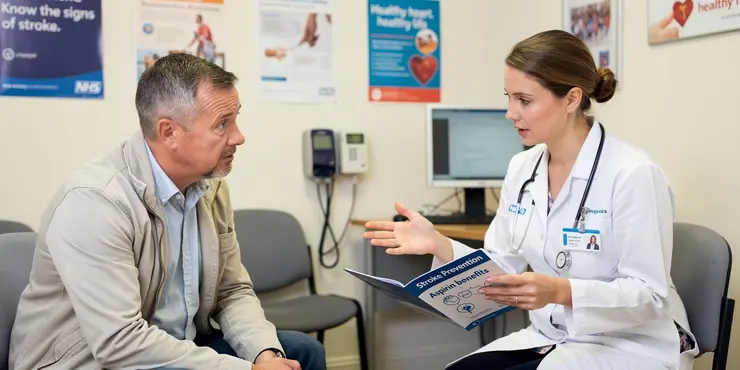
Can aspirin help in reducing the risk of strokes?
Relevance: 32%
-
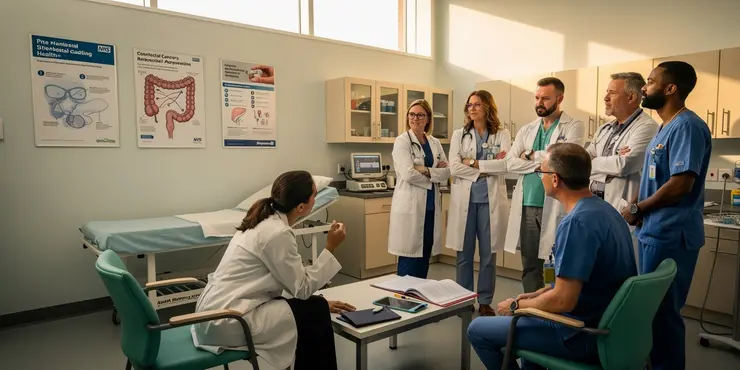
Do all studies agree on aspirin's effectiveness in preventing colorectal cancer?
Relevance: 31%
-
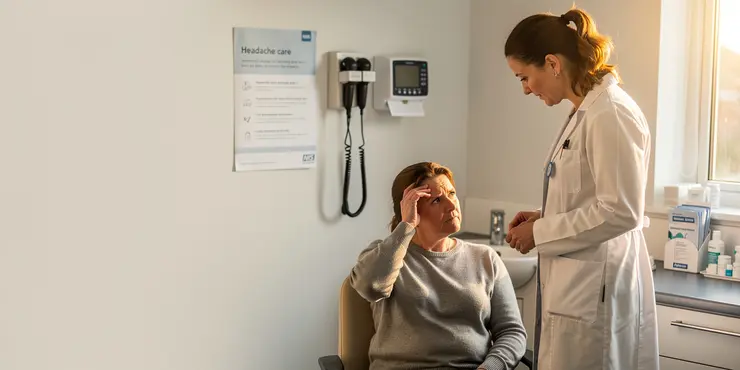
Which one is better for headaches: Aspirin or Paracetamol?
Relevance: 31%
-
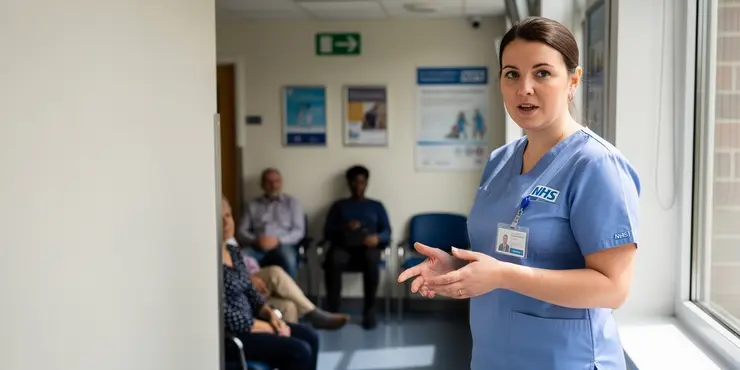
At what age should I start testing myself for colorectal cancer?
Relevance: 31%
Introduction
Aspirin is a widely used medication known primarily for its pain-relieving and anti-inflammatory properties. There has been considerable interest in its potential role in preventing and treating certain types of cancer, including colorectal cancer. This article examines whether aspirin has been proven to cure colorectal cancer and looks at the current evidence and guidelines.
The Potential of Aspirin in Cancer Prevention
Research has shown that aspirin may have a protective effect against colorectal cancer. Several observational studies have suggested that regular use of aspirin is associated with a reduced risk of developing colorectal cancer. It is believed that aspirin's anti-inflammatory effects may help to prevent the initiation and progression of cancerous cells in the colon and rectum.
Evidence from Clinical Studies
While there is promising data regarding aspirin's role in the prevention of colorectal cancer, it is essential to note that curing existing cancer is a different proposition. Clinical trials specifically addressing aspirin's efficacy in treating established colorectal cancer are limited. However, some studies have examined aspirin as an adjuvant therapy, meaning it is used in conjunction with other treatments to enhance the overall effect.
One prominent study is the CAPP2 trial, which looked at individuals with Lynch syndrome, a genetic condition that increases colorectal cancer risk. The trial found that daily aspirin intake significantly reduced cancer incidence among participants over an extended follow-up period. Nonetheless, these findings are more aligned with prevention than cure.
Ongoing Research and Guidelines
There is ongoing research to better understand how aspirin could be used in colorectal cancer treatment. Some studies suggest that aspirin might improve survival rates among patients with particular genetic markers, yet these findings require further validation through larger clinical trials.
Regarding guidelines, healthcare authorities such as the UK National Institute for Health and Care Excellence (NICE) recommend aspirin for reducing colorectal cancer risk in certain high-risk groups. However, it is not currently endorsed as a standard treatment for curing established colorectal cancer.
Conclusion
In conclusion, although aspirin has shown promise in reducing the risk of colorectal cancer, it is not yet proven to cure the disease. The use of aspirin in this context should be guided by healthcare professionals, based on individual risk factors and genomic insights. Patients should not self-medicate with aspirin for colorectal cancer treatment without medical advice, given the potential side effects and complexities of cancer care.
Introduction
Aspirin is a common medicine. People use it to stop pain and swelling. Some doctors are looking at how aspirin could help with certain cancers, like bowel cancer. This article talks about if aspirin can help cure bowel cancer and what we know right now.
How Aspirin Might Help Stop Cancer
Studies show aspirin might help protect against bowel cancer. Some people who take aspirin regularly seem to have a lower chance of getting this cancer. Aspirin might help because it stops swelling, which can stop bad cells from growing in the bowel.
What Research Shows
Aspirin might help prevent bowel cancer. But curing it is another thing. There are not many studies that show aspirin can cure cancer once you have it. Some tests have looked at using aspirin with other treatments to make them work better.
One important study is called the CAPP2 trial. It looked at people with Lynch syndrome, which makes them more likely to get bowel cancer. The study showed that people taking aspirin each day had fewer cases of cancer over time. But this shows it helps prevent, not cure, the cancer.
New Studies and Advice
Scientists are still studying how aspirin might help treat bowel cancer. Some studies say aspirin might help some people live longer, but we need more big studies to know for sure.
Some health groups, like NICE in the UK, say that some people who are more likely to get bowel cancer can take aspirin. But aspirin is not yet proven as a cure for people who already have bowel cancer.
Conclusion
In short, aspirin might help lower the chance of getting bowel cancer, but it does not cure it. Doctors should decide if someone should take aspirin for cancer based on personal health and risks. People should not take aspirin on their own for cancer without talking to a doctor, because aspirin can have side effects and cancer treatments can be complicated.
Frequently Asked Questions
Has aspirin been proven to cure colorectal cancer?
No, aspirin has not been proven to cure colorectal cancer. However, it may have a role in prevention and risk reduction.
What role does aspirin play in colorectal cancer prevention?
Aspirin has been shown to reduce the risk of developing colorectal cancer, particularly in individuals at high risk.
Can taking aspirin reduce the risk of colorectal cancer?
Yes, studies suggest that regular use of aspirin can reduce the risk of developing colorectal cancer.
Who should consider taking aspirin to prevent colorectal cancer?
People at high risk of colorectal cancer or those with a family history may benefit, but they should consult with their doctor.
What are the risks of taking aspirin for colorectal cancer prevention?
Aspirin can cause side effects such as gastrointestinal bleeding and ulcers.
Does aspirin affect existing colorectal cancer?
Aspirin is not used to treat existing colorectal cancer, but it may be part of a comprehensive risk reduction strategy.
Is aspirin recommended for everyone to prevent colorectal cancer?
No, aspirin is not recommended for everyone due to potential side effects and should only be used as advised by a healthcare professional.
How does aspirin help in reducing colorectal cancer risk?
Aspirin may reduce inflammation and prevent new polyps from forming, which can lower cancer risk.
Have clinical trials proven aspirin's effectiveness in preventing colorectal cancer?
Several studies and clinical trials have shown aspirin's potential in reducing colorectal cancer risk, particularly for long-term users.
Is there any ongoing research on aspirin and colorectal cancer?
Yes, ongoing research is evaluating the optimal use and dosage of aspirin for colorectal cancer prevention.
What is the recommended dosage of aspirin for cancer prevention?
The appropriate dosage varies, and individuals should consult with their healthcare provider for personal recommendations.
Can aspirin replace other colorectal cancer screenings?
No, aspirin should not replace regular screenings like colonoscopies; it's an additional preventive measure.
Is aspirin effective for all types of colorectal cancer?
Aspirin has shown effectiveness in reducing risk broadly, but its impact may vary based on individual cancer subtypes.
What are the possible alternatives to aspirin for colorectal cancer prevention?
Other strategies include lifestyle changes, dietary modifications, and regular screenings.
Does aspirin work the same for different age groups in cancer prevention?
Aspirin's effects may differ by age, with guidelines particularly focusing on its use in middle-aged individuals for prevention.
Should people with other health conditions consider aspirin for colorectal cancer prevention?
Individuals with other health conditions should consult their doctor due to potential interactions and side effects.
Does aspirin reduce the recurrence of colorectal cancer?
Some studies suggest aspirin may reduce the recurrence, but it is not a standalone treatment option.
How long does one need to take aspirin to see a reduction in colorectal cancer risk?
Long-term use, often several years, is typically required to see a reduction in risk.
Has aspirin use been integrated into standard colorectal cancer prevention guidelines?
Some guidelines include aspirin as a preventive measure for certain high-risk populations.
What should someone do if they're considering aspirin for cancer prevention?
They should discuss the potential benefits and risks of aspirin use with their healthcare provider to determine if it's appropriate for them.
Does aspirin stop bowel cancer?
Aspirin does not cure bowel cancer.
But, it might help stop you from getting it. It can make the chances of getting bowel cancer smaller.
How can aspirin help stop bowel cancer?
Aspirin is a medicine. It can help stop some types of cancer, like bowel cancer. Bowel cancer is also called colorectal cancer. Taking aspirin might lower the chance of getting this cancer.
If you want to know more about how aspirin works or if it is right for you, talk to a doctor.
Here are some helpful tips:
- Use pictures and videos to help understand tough ideas.
- Ask someone you trust to explain things in a simple way.
- Write down any questions you have before seeing your doctor.
- Bring someone with you to appointments to help you remember what the doctor says.
Aspirin can help lower the chance of getting bowel cancer. This is very helpful for people who have a high risk of getting cancer.
Can aspirin help stop bowel cancer?
Yes, taking aspirin often may help lower the chance of getting bowel cancer. Scientists have found this in studies.
Who should think about taking aspirin to stop bowel cancer?
Some people might take a medicine called aspirin to help not get a type of cancer called bowel cancer.
Talk to your doctor to see if taking aspirin is right for you. They can help you decide.
Always follow your doctor's advice before taking any medicine. Using tools like pictures or simple charts might help you understand better what the doctor says.
If someone has a high chance of getting bowel cancer, or if people in their family had it, they might need help. It's best for them to talk to their doctor about it.
What can happen if you take aspirin to stop bowel cancer?
Taking aspirin can help some people stop bowel cancer, but it can also have risks. It might make your tummy hurt or cause bleeding. Always ask a doctor before taking it.
Tools that can help you understand more are picture cards or talking with someone like a nurse. You can also use apps that read the text out loud.
Aspirin might cause tummy problems like bleeding in the stomach and sores inside the stomach.
Does aspirin change bowel cancer?
Aspirin does not help to treat bowel cancer if you already have it. But taking aspirin might help lower the chance of getting bowel cancer in the future.
Can everyone take aspirin to stop bowel cancer?
Aspirin can help stop bowel cancer for some people. But it is not good for everyone. It can cause other health problems sometimes.
If you think about taking aspirin, talk to a doctor first. They can tell you if it is safe for you.
You can also use tools like text-to-speech apps to read this out loud. It makes it easier to understand.
No, not everyone should take aspirin. It can have bad effects. You should only take it if a doctor says it is okay for you.
How does aspirin help lower the risk of bowel cancer?
Aspirin is a medicine. It can help stop bowel cancer. Bowel cancer is a type of cancer that affects the gut.
Aspirin can make swelling and pain go away. This might help stop cancer cells from growing in the bowel.
If you are thinking about taking aspirin, talk to a doctor first. It's important to be safe.
For help with reading, you can:
- Ask someone to read with you.
- Use a text-to-speech app to listen to the text.
- Break down big ideas into smaller parts.
Aspirin can help stop swelling and might stop new lumps from growing inside the body. This can make the risk of getting cancer lower.
If reading is hard, try using audiobooks or reading apps to help. You can also ask someone to read with you.
Does aspirin help stop bowel cancer?
Researchers want to know if taking aspirin pills can help stop bowel cancer (a type of cancer in the tummy area).
Scientists have done many studies and tests. They found that aspirin can help lower the chance of getting bowel cancer. This is especially true for people who take it for a long time.
Are scientists studying how aspirin can help with bowel cancer?
Yes, scientists are looking into the best way to use aspirin to help stop bowel cancer. They want to find the right amount to take.
How much aspirin should I take to help stop cancer?
Aspirin might help stop some kinds of cancer. But it's very important to know how much to take. Ask your doctor to find out what is right for you. They can tell you how much aspirin is safe.
Using tools like speaking apps or having someone read to you can make understanding easier. Always get advice from your doctor before taking medicine.
The right amount of medicine is different for everyone. You should talk to your doctor or nurse to find out what is best for you.
Can aspirin take the place of other tests for bowel cancer?
No, taking aspirin does not replace going to the doctor for checks like colonoscopies. It is just something extra you can do to help stay healthy.
Does aspirin help with all types of bowel cancer?
Aspirin can help lower the risk of getting some kinds of cancer. But, it might work differently for different types of cancer.
What other medicines can help stop bowel cancer instead of aspirin?
Other ways to stay healthy are to change how you live, eat better foods, and go to the doctor for check-ups often.
Can aspirin help stop cancer for everyone?
Does aspirin work the same for kids, adults, and older people? It may be different for each age group.
If you are confused, here are some tips:
- Use simple words to explain things.
- Ask a friend or family member for help.
- Look for pictures or videos to understand better.
Aspirin can work differently for people of different ages. Doctors think about using aspirin mostly for people who are in the middle-aged group to help keep them healthy.
Can people with health problems take aspirin to help stop bowel cancer?
If you have other health problems, talk to your doctor. Medicine might not work well with other treatments you are taking, and you could feel sick.
Can aspirin help stop bowel cancer from coming back?
This is about bowel cancer, which grows in the big tube inside your tummy. People want to know if taking aspirin, a type of medicine, can help stop this cancer from coming back after you have it.
If you find reading hard, you can ask someone to read with you. You can also use audiobooks or read out loud to help you understand better.
Some research shows aspirin might help stop something from happening again, but it cannot be the only treatment used.
How long do you need to take aspirin to help lower the chance of getting bowel cancer?
You might need to use it for a long time, maybe a few years, to see it help lower the risk.
Is taking aspirin now a regular part of guidelines to prevent colorectal cancer?
Some rules say it can be good to take aspirin to help people who are at high risk of getting sick.
What to do if you want to use aspirin to stop cancer?
If you are thinking about taking aspirin to help keep away cancer, talk to a doctor. They can tell you if it is a good idea for you. Not everyone should take aspirin.
Here are some steps you can follow:
- Ask your doctor if aspirin is right for you.
- Your doctor will tell you how much to take and how often.
- Make sure to take aspirin just like the doctor says.
- If aspirin makes you feel sick, tell your doctor.
Helpful tools:
- Use a calendar to remember when to take your aspirin.
- Tell a family member to help you remember.
Talk to your doctor about taking aspirin. Your doctor can help you decide if it is good for you or not. They will tell you the good and bad things about aspirin.
Useful Links
This website offers general information and is not a substitute for professional advice.
Always seek guidance from qualified professionals.
If you have any medical concerns or need urgent help, contact a healthcare professional or emergency services immediately.
Some of this content was generated with AI assistance. We’ve done our best to keep it accurate, helpful, and human-friendly.
- Ergsy carfully checks the information in the videos we provide here.
- Videos shown by Youtube after a video has completed, have NOT been reviewed by ERGSY.
- To view, click the arrow in centre of video.
- Most of the videos you find here will have subtitles and/or closed captions available.
- You may need to turn these on, and choose your preferred language.
- Go to the video you'd like to watch.
- If closed captions (CC) are available, settings will be visible on the bottom right of the video player.
- To turn on Captions, click settings .
- To turn off Captions, click settings again.
More Items From Ergsy search
-

Has aspirin been proven to cure colorectal cancer?
Relevance: 100%
-

Can aspirin stop colorectal cancer?
Relevance: 86%
-

Is aspirin recommended for everyone to prevent colorectal cancer?
Relevance: 81%
-

Should people with a family history of colorectal cancer take aspirin?
Relevance: 76%
-
Is aspirin more effective for certain age groups in preventing colorectal cancer?
Relevance: 73%
-
Is aspirin effective in preventing other types of cancer?
Relevance: 63%
-

Can aspirin prevent colorectal cancer?
Relevance: 60%
-

How does aspirin work to reduce cancer risk?
Relevance: 59%
-
Are there ongoing studies about aspirin and colorectal cancer?
Relevance: 57%
-

What should I do if I'm considering aspirin for cancer prevention?
Relevance: 57%
-
Has the FDA approved aspirin for cancer prevention?
Relevance: 57%
-
How long do studies suggest taking aspirin for cancer prevention?
Relevance: 57%
-

What dosage of aspirin is considered effective for cancer prevention?
Relevance: 56%
-

What is colorectal cancer?
Relevance: 55%
-

What do health organizations say about aspirin and cancer prevention?
Relevance: 54%
-

Is genetic testing available for colorectal cancer?
Relevance: 51%
-

What factors increase my risk of colorectal cancer?
Relevance: 50%
-

What are the recommendations for colorectal cancer screening?
Relevance: 50%
-
Are there risks associated with home colorectal cancer tests?
Relevance: 49%
-

How can I test myself for colorectal cancer?
Relevance: 49%
-

Will insurance cover the cost of home colorectal cancer tests?
Relevance: 48%
-

What are the advantages of an at-home colorectal cancer test?
Relevance: 47%
-

Can home colorectal cancer tests replace a colonoscopy?
Relevance: 47%
-
Can lifestyle changes also help prevent colorectal cancer?
Relevance: 47%
-

How often should I perform a home colorectal cancer test?
Relevance: 46%
-

Does Abiraterone cure prostate cancer?
Relevance: 41%
-

What is Aspirin?
Relevance: 37%
-

Are home tests for colorectal cancer accurate?
Relevance: 36%
-
Can aspirin interact with other medications?
Relevance: 35%
-

Is Paracetamol the same as Aspirin?
Relevance: 35%
-

Are Aspirin and Ibuprofen the same?
Relevance: 34%
-

What are the side effects of Aspirin?
Relevance: 34%
-

What alternative methods exist to screen for colorectal cancer?
Relevance: 33%
-

Can lifestyle factors influence the results of a colorectal cancer test?
Relevance: 32%
-

What are the main methods for testing yourself for colorectal cancer?
Relevance: 32%
-

Can I take Aspirin and Ibuprofen together?
Relevance: 32%
-

Can aspirin help in reducing the risk of strokes?
Relevance: 32%
-

Do all studies agree on aspirin's effectiveness in preventing colorectal cancer?
Relevance: 31%
-

Which one is better for headaches: Aspirin or Paracetamol?
Relevance: 31%
-

At what age should I start testing myself for colorectal cancer?
Relevance: 31%


